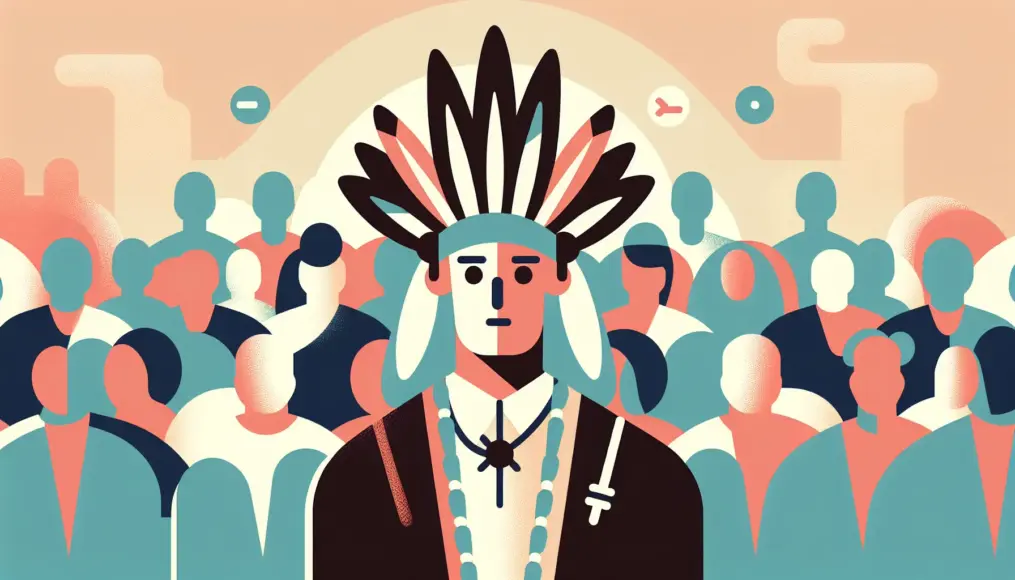Leadership is a crucial element in guiding individuals and teams toward success. However, it’s important to remember that leadership skills aren’t innate; they require conscious effort and growth. In this article, we’ll explore specific steps to enhance your leadership abilities. We’ll take a comprehensive approach, covering everything from self-awareness to effective habits and communication skills. So, stick with us until the end!
Now is the perfect time for you to hone your leadership skills and confidently become a guiding force in your environment. This article is packed with practical methods and actionable tips to support your growth.
- Understand the definition of leadership and its importance
- Learn practical methods to boost your self-awareness
- Grasp the key points of effective communication
What is Leadership?
Leadership is an essential element for the success of any organization or team. Individuals with leadership skills possess the ability to guide and influence others effectively. In this chapter, we’ll delve deeper into the definition of leadership and its significance. Understanding leadership can illuminate pathways for your personal growth and career advancement.
Defining Leadership
At its core, leadership refers to the ability or process of guiding others toward a specific goal. It goes beyond merely issuing commands; building trust and unlocking the potential of team members are crucial components. A leader possesses a vision and has the capacity to share it, engaging those around them in the journey. Leadership skills are closely intertwined with communication, decision-making, and problem-solving abilities.
There are various leadership styles, but one common requirement is flexibility and adaptability. Leaders must adjust their approaches based on circumstances and respond to the needs of their team. When leadership is effective, the entire team can unite and move forward toward a common goal.
- Leadership is about the ability and process of guiding others.
- Building trust is essential.
- Flexibility and adaptability are key.
The Importance of Leadership
Leadership plays a vital role in the success of an organization. When effective leadership is present, teams are more likely to maintain high motivation and improve operational efficiency. Particularly when goals are clear and leaders provide solid support for achieving them, team members can confidently fulfill their roles.
Moreover, leadership has the power to drive transformation. In a rapidly changing world, there is a demand for individuals who can provide new direction and guide teams toward it. By enhancing leadership skills, you can contribute not only to your personal growth but also to the overall development of the organization.

If you’re interested in this topic, check out our article on “Secrets to Accelerating Personal Growth Through Goal Setting.” Effective goal setting is crucial for enhancing leadership, and through concrete steps and practical advice, you can learn how to accelerate your growth.
- Effective leadership boosts team motivation.
- Clear goal setting and support are crucial.
- Leaders capable of driving transformation are in demand.
The Power of Self-Awareness
Self-awareness is a fundamental element in enhancing leadership skills. By understanding ourselves, we gain insight into how to build relationships with others and how to effectively fulfill our roles as leaders. In this chapter, we will explore the impact of self-awareness and methods for self-evaluation that can help improve it. Deepening your self-awareness will enable you to exercise leadership more effectively.
The Impact of Self-Awareness
As self-awareness increases, you become better at recognizing your strengths and weaknesses. This, in turn, boosts your confidence in your actions and decisions as a leader, leading to smoother communication with others. Notably, it enhances your ability to accept feedback, making it easier to respect the opinions of team members.
Additionally, self-awareness aids in managing emotions. By understanding your feelings and reactions, you can handle stressful situations with a level head. As a result, your credibility as a leader improves, fostering stronger cohesion within your team.
- Self-awareness helps identify strengths and weaknesses
- Communication becomes smoother
- Emotional management enhances leadership effectiveness
Methods and Practices for Self-Evaluation
There are several ways to conduct self-evaluation. First and foremost, it’s crucial to set aside time for reflection on your behaviors and thought patterns. Keeping a journal or regularly engaging in self-analysis can help you stay mindful of your growth. Additionally, seeking feedback from others is incredibly valuable. By asking trusted colleagues or mentors for their insights, you can gain perspectives that you might not notice on your own.
Moreover, goal-setting is essential for self-evaluation. Establishing specific goals and working towards them can enhance your leadership skills. Regularly reviewing your goals and checking your progress will help you feel a sense of personal growth.
- Reflection time is necessary for self-evaluation
- Actively seek feedback
- Setting specific goals is important
Building Efficient Habits
To enhance your leadership skills, developing efficient habits is essential. Habits shape our daily actions and significantly impact our growth as leaders. In this section, we will delve into the mechanisms of habit formation and explore the habits practiced by successful leaders. Let’s take a moment to reflect on our own habits and discover tips for personal growth.
The Mechanism of Habit Formation
Habit formation is a process where the brain automates specific behaviors. To establish new habits, you first need to consciously repeat the action until your brain memorizes it. Consistency is key during this stage. By engaging in the same behavior over a set period, your brain starts to recognize it as a “habit.”
Additionally, habit formation involves “triggers” and “rewards.” A trigger is an event or situation that initiates the habit, while a reward serves as motivation to continue the behavior. For example, if you want to make morning jogging a habit, waking up at the same time each morning acts as the trigger, and the refreshing feeling after your workout is the reward.
- Habits are a process of brain automation
- Consistency is necessary for habit formation
- Triggers and rewards are key to habits
Common Habits of Successful Leaders
Successful leaders share several common habits. First and foremost is effective time management. Leaders clearly define how they will spend their time and prioritize their actions. This focus allows them to concentrate on important tasks and work efficiently.
Another important trait is a commitment to continuous learning. Successful leaders are always seeking new knowledge and skills, dedicating themselves to personal development. They foster their growth through reading, attending seminars, and seeking feedback from others.
Moreover, leaders pay attention to their health. Physical well-being significantly influences mental performance, so they prioritize proper nutrition and exercise to maintain sustained performance.

If you found this article helpful for your habit formation, be sure to check out our article on “Mastering Goal Setting: Concrete Steps to Transform Your Life!.” It provides detailed insights into the importance of goal setting and specific methods to help you cultivate efficient habits.
- Successful leaders excel at time management
- A commitment to continuous learning is essential
- Health management impacts performance
Enhancing Communication Skills
In leadership, communication skills play a crucial role. Leaders who can communicate effectively are better positioned to build trust with their team members and share common goals. In this section, we’ll dive into key points for effective communication and how to cultivate relationships with others. Let’s explore some tips to help you improve your communication skills as you grow in your leadership journey.
Key Points for Effective Communication
Effective communication goes beyond just conveying your intentions; it also involves understanding the opinions and emotions of others. First and foremost, active listening is vital for leaders. By genuinely listening to others and demonstrating a willingness to understand, you can foster a sense of trust. Additionally, don’t overlook non-verbal communication. Body language and facial expressions significantly influence how messages are received, so be mindful of these cues.
To communicate clearly, it’s essential to choose concise language. By avoiding complex phrases and providing specific examples, you can make your message easier for others to grasp. This approach helps reduce misunderstandings and enhances the effectiveness of your communication.
- Active listening builds trust
- Pay attention to non-verbal communication
- Clear and concise messages are key
Building Relationships with Others
Building relationships is an essential skill in leadership. It starts with approaching others with empathy. Striving to understand their perspectives and emotions lays the groundwork for trust. Additionally, expressing gratitude is vital. Acknowledging team members’ contributions and offering words of thanks can strengthen your relationships.
Moreover, fostering open communication is also effective. By sharing your opinions candidly while also listening to others, you can create a vibrant dialogue. Establishing such an environment boosts overall team performance and deepens mutual understanding.
- Empathy fosters trust
- Showing gratitude is important
- Strive for open communication
Summary
To enhance your leadership skills, it’s essential to improve self-awareness, cultivate effective habits, and strengthen communication abilities. These elements are interconnected and play a vital role in your personal growth journey. By refining your qualities as a leader, you can strengthen your ability to guide others and boost your team’s overall performance.
Moreover, leadership isn’t something you acquire overnight. It requires consistent effort and reflection to gradually enhance your skills. By continually embracing new knowledge and actively putting it into practice, you’ll be able to evolve your leadership style even further.
- Improving self-awareness is crucial for leadership skills
- Effective habits foster growth as a leader
- Communication skills are key to building trust
Your leadership journey begins here. Keep practicing, and strive to become a confident and inspiring presence in your surroundings. We’d love to hear your thoughts and experiences in the comments section!










































Comment